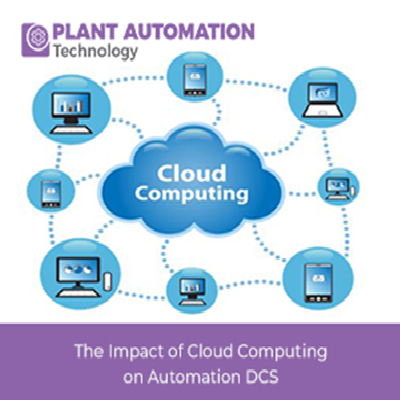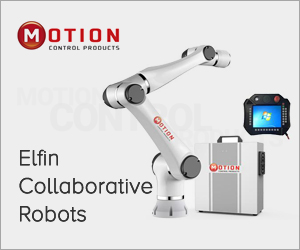The Impact of Cloud Computing on Automation DCS

Introduction
Automation DCS (Distributed Control Systems) plays a crucial role in optimizing industrial processes, enabling real-time monitoring, and ensuring efficient control of complex systems. With the rapid advancements in cloud computing technology, industries have witnessed a transformative impact on their operations. This article explores the integration of cloud computing with Automation DCS and its far-reaching implications.
Understanding Cloud-based Automation DCS
Cloud-based Automation DCS refers to the deployment of control systems that utilize cloud computing infrastructure to store, process, and analyze data. Unlike traditional DCS, which relies on localized hardware and software, cloud-based solutions leverage the internet to access resources remotely.
Advantages of Cloud-based DCS
The integration of cloud computing with Automation DCS brings several advantages that positively impact industrial processes.
• Real-time Data Accessibility: Cloud-based DCS allows for instant access to process data, empowering operators and decision-makers to make informed choices swiftly. Remote access to data enhances responsiveness and flexibility in managing operations.
• Cost Savings: By eliminating the need for extensive on-site hardware and maintenance, cloud-based DCS reduces capital expenditure, allowing businesses to focus resources on core competencies.
• Scalability: Cloud infrastructure enables dynamic resource allocation, accommodating changing operational needs without manual intervention. This scalability enhances adaptability to varying workloads.
• Enhanced Collaboration: Cloud-based DCS enables real-time collaboration among multiple stakeholders, such as operators, engineers, and management, fostering a more cohesive and efficient decision-making process.
Enhancing Security and Privacy in Cloud-based DCS
While cloud-based DCS offers numerous benefits, data security and privacy are key concerns for some industries. Cloud service providers address these issues by implementing robust security protocols, including encryption and access controls. Additionally, they adhere to strict data protection regulations and industry standards to ensure responsible and transparent handling of sensitive information. With these measures in place, cloud-based DCS establishes itself as a reliable and secure solution for industries embracing automation while safeguarding data.
| Also Read: Neuromorphic Computing: Pioneering Cognitive Automation in Manufacturing |
Reliability and Redundancy
Cloud-based DCS systems offer high availability and reliability through redundant data centers distributed across various geographical locations.
• Redundancy: Cloud infrastructure utilizes data replication and backup mechanisms, ensuring data redundancy for disaster recovery purposes. Redundancy reduces the risk of data loss due to hardware failures or natural disasters.
• High Availability: With multiple data centers, cloud-based DCS minimizes the risk of downtime, enhancing the overall reliability of critical industrial processes.
Performance and Latency
Cloud-based DCS leverages internet connectivity, which introduces considerations for network performance and latency.
• Network Latency: The delay in data transmission between the cloud and devices can impact real-time control applications. Efforts are made to optimize network configurations and reduce latency.
• Performance Optimization: Cloud providers invest in improving network infrastructure and latency-sensitive services to ensure smooth and responsive DCS operations.
Utilizing Data Analytics and Machine Learning in Cloud-based DCS
Cloud computing enables seamless integration of advanced data analytics and machine learning into Automation DCS. With cloud-based DCS, industries can collect and analyze vast operational data, gaining data-driven insights for process optimization. Additionally, machine learning algorithms predict equipment failures, enabling proactive maintenance to minimize downtime. This synergy revolutionizes automation, leading to a more efficient and reliable operational environment.
Industry Use Cases
Several industries have embraced cloud-based DCS solutions, experiencing tangible benefits in their operations.
• Manufacturing: Cloud-based DCS in manufacturing enables seamless integration across different production units, enhancing supply chain visibility and optimizing production processes.
• Energy: The energy sector leverages cloud-based DCS to monitor and control distributed energy sources, improving grid management and demand response capabilities.
• Healthcare: Cloud-based DCS in healthcare facilitates remote monitoring of medical equipment, patient data analysis, and streamlined healthcare operations.
• Transportation: Cloud-based DCS in transportation enables real-time tracking of assets, optimizing logistics, and enhancing fleet management.
Data Security and Disaster Recovery in Cloud-based DCS
Cloud-based DCS solutions prioritize data security and disaster recovery. Robust security protocols, including encryption, multi-factor authentication, and role-based access controls, safeguard sensitive data from unauthorized access. Regular data backups and redundant storage across multiple data centers ensure critical information is protected from hardware failures and unforeseen disasters. This level of data security and disaster recovery capability provides reassurance to industries relying on cloud-based DCS for their crucial operations.
Remote Monitoring and Maintenance in Cloud-based DCS
Cloud-based DCS facilitates remote monitoring and maintenance of industrial processes and equipment. With real-time data access from anywhere via the internet, engineers and maintenance personnel can diagnose issues, perform updates, and troubleshoot problems remotely. This capability reduces the need for on-site visits, minimizing downtime, and enhancing overall system efficiency. Additionally, cloud-based DCS enables over-the-air software updates, ensuring the system remains up-to-date with the latest enhancements and security patches.
Global Accessibility and Multi-site Management
For multinational corporations or industries with multiple facilities, cloud-based DCS provides global accessibility and centralized management. Operators and managers can access the system from any location worldwide, facilitating real-time collaboration and consistent monitoring across different sites. Centralized management simplifies system administration, enabling uniform configurations and updates across all locations, which results in improved standardization and operational efficiency.
Reducing Environmental Impact
Cloud-based DCS contributes to sustainability efforts by reducing the environmental impact of industrial operations. By leveraging cloud infrastructure, companies can optimize resource usage and minimize energy consumption associated with on-premises data centers. Additionally, cloud providers often employ energy-efficient technologies and renewable energy sources for their data centers, aligning with organizations' green initiatives.
Cloud Migration Strategies and Best Practices
Organizations considering the transition to cloud-based DCS need to plan a comprehensive migration strategy. This section could explore various cloud migration models (e.g., lift-and-shift, re-platforming, refactoring) and best practices for a smooth and successful migration. Additionally, discussing potential challenges and mitigation strategies would provide valuable insights for industries venturing into cloud-based DCS implementation.
Realizing the Full Potential of Cloud-based DCS
To reap the full benefits of cloud-based DCS, industries must embrace a culture of innovation and adaptability. This section could emphasize the importance of fostering a data-driven mindset, encouraging the exploration of advanced analytics, and promoting continuous improvement through feedback loops. By actively utilizing data insights, organizations can optimize processes, maximize productivity, and uncover new growth opportunities in the ever-evolving landscape of cloud computing and industrial automation.
Future Trends and Challenges
Cloud-based Automation DCS continues to evolve, bringing new opportunities and challenges.
• Edge Computing Integration: The integration of edge computing with cloud-based DCS allows for localized processing and quicker decision-making in edge devices, reducing latency for critical applications.
• Legacy System Integration: Upgrading from traditional DCS to cloud-based solutions may pose challenges in integrating with legacy systems. Industries must plan for seamless migration strategies.
• Regulatory Compliance: As industries embrace cloud-based DCS, adherence to data privacy and industry-specific regulations becomes essential.
Conclusion
The integration of cloud computing with Automation DCS has redefined industrial processes, offering real-time data accessibility, cost savings, scalability, and enhanced collaboration. Cloud-based DCS empowers industries to optimize operations, make data-driven decisions, and adapt to dynamic market demands. While security and latency concerns are addressed, cloud-based DCS opens doors to advanced analytics, predictive maintenance, and improved reliability, propelling industries into a more connected and efficient future.







